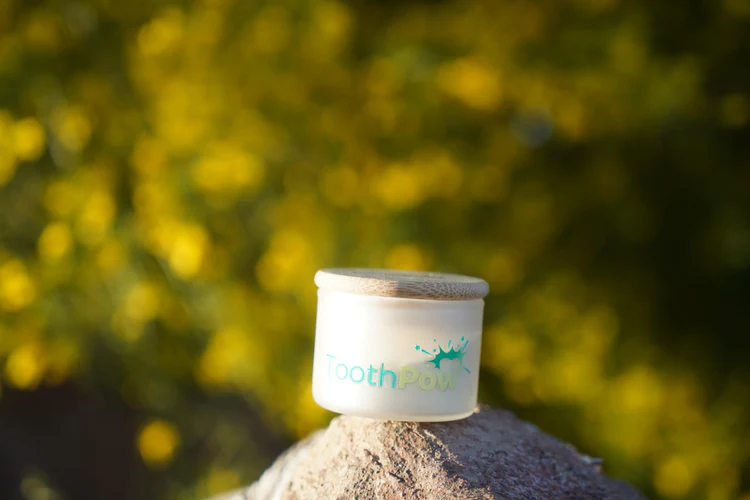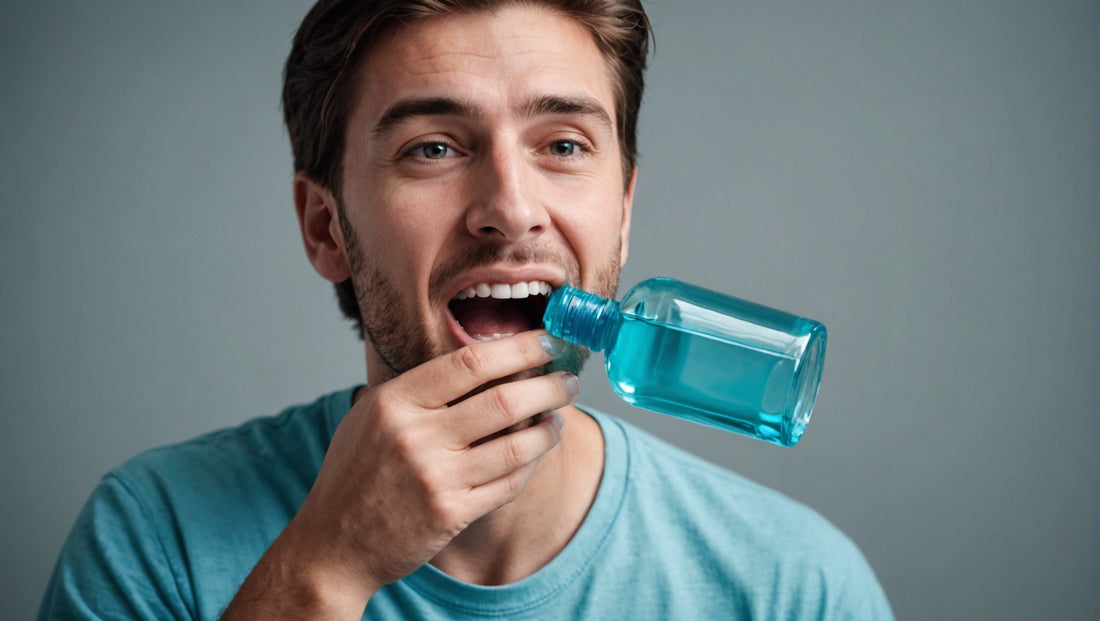Introduction
Mouthwash is a popular oral hygiene product, often touted for its ability to freshen breath and improve oral health. But should you be using it every day? While alcohol-free mouthwashes might be safe for daily use, many commercial mouthwashes contain ingredients that may not be beneficial in the long run. In this article, we’ll explore what mouthwash is, how it works, and why natural solutions might be the best route for maintaining a healthy mouth.
What is Mouthwash?
Mouthwash, also known as an oral rinse, is a liquid solution designed to help maintain oral hygiene by freshening breath, reducing bacteria, and providing various other benefits. Typically used as a supplementary step alongside brushing with fluoride-free toothpaste and flossing, mouthwash comes in a variety of formulations and flavors, depending heavily on the manufacturer.
How Does Mouthwash Work?
Mouthwash contains active ingredients that serve different purposes:
Antiseptic Mouthwashes: These may help kill bacteria, reduce plaque, and diminish bad breath. Common ingredients include alcohol and chlorhexidine (source).
Remineralizing Mouthwashes: These contain agents like fluoride or hydroxyapatite to strengthen tooth enamel and prevent decay (source).
The Downsides of Using Mouthwash Daily
While mouthwash can offer benefits, not all formulations are created equal. Here are some common harmful ingredients found in many commercial mouthwashes:
Alcohol: Often included for its antibacterial properties, alcohol can dry out the mouth, leading to decreased saliva production and potential irritation (source).
Hydrogen Peroxide: Used for its whitening effects, hydrogen peroxide can cause gum irritation and increased tooth sensitivity (source).
Chlorhexidine: Effective at killing bacteria, but long-term use can lead to staining of the teeth and an imbalance in the oral microbiome (source).
The Benefits of Natural Oral Care
Opting for natural oral care solutions can help you avoid the potential downsides of chemical-laden mouthwashes. Natural ingredients support a healthy oral environment without the adverse effects. Here’s why:
Essential Oils: Natural antibacterials like tea tree oil and peppermint oil can help reduce harmful bacteria while maintaining a balanced oral microbiome (source).
Xylitol: A natural sweetener that helps to reduce cavity-causing bacteria (source).
Hydroxyapatite and Baking Soda: These ingredients help to remineralize teeth and neutralize acids, promoting overall dental health (source).
Alternatives to Daily Mouthwash Use
Proper Brushing and Flossing Techniques The foundation of good oral hygiene is thorough brushing and flossing. Using a soft-bristled toothbrush and fluoride-free toothpaste can effectively remove plaque and prevent cavities. Flossing helps clean between teeth, reducing the risk of gum disease.
Oil Pulling Oil pulling is an ancient practice that involves swishing a tablespoon of oil (such as coconut or sesame oil) in the mouth for 10-20 minutes. This technique can help reduce harmful bacteria, improve oral hygiene, and promote fresher breath (source).
Homemade Natural Mouth Rinses Creating your own natural mouth rinse is simple and effective. A mixture of water, a pinch of sea salt, and a few drops of essential oils like tea tree or peppermint can make a gentle yet powerful rinse. This option avoids the harsh chemicals found in many commercial products.
How to Use Mouthwash Correctly
If you decide to use mouthwash, it's essential to do it correctly:
Measure out about 20mL of mouthwash (or take a big swig).
Gargle and swish the mouthwash around your mouth for at least 20-30 seconds.
Spit it out.
Remember, mouthwash should complement your oral care routine, not replace brushing and flossing.
Expert Opinions
What Dentists Say About Mouthwash
Many holistic and natural-focused dentists recommend caution when using commercial mouthwashes. Dr. Jane Smith, a holistic dentist, states, "While mouthwash can be beneficial in certain situations, daily use of products containing alcohol and artificial ingredients can be detrimental to long-term oral health. Natural alternatives support a balanced oral microbiome and provide effective oral care without the risks associated with chemical-laden products."

Conclusion
While the convenience and immediate freshness of commercial mouthwash are tempting, daily use may not be the best choice for your oral health. Harsh chemicals can disrupt the natural balance in your mouth, leading to potential issues over time. Natural oral care solutions offer a safer, more holistic approach to maintaining dental hygiene. Consider switching to natural alternatives and consult with your dentist to find the best oral care routine for you.
Frequently Asked Questions
Can I use mouthwash as a replacement for brushing my teeth? No, mouthwash is not a substitute for brushing your teeth. It can be used as a supplementary step in your oral hygiene routine, but brushing and flossing are essential for proper cleaning.
Are there any side effects of using mouthwash daily? Using mouthwash daily is generally safe, but some alcohol-based mouthwashes can lead to dry mouth and other issues with prolonged use. Therefore, it's a good idea to consider switching to alcohol-free mouthwash.
What's the difference between antiseptic and fluoride mouthwash? Antiseptic mouthwash is designed to kill bacteria and reduce plaque, while mouthwash containing fluoride is meant to strengthen tooth enamel and prevent tooth decay.
Can children use mouthwash, and if so, which type is suitable for them? Children can use mouthwash provided they can safely gargle and spit. Children should only use mouthwash under adult supervision to prevent swallowing.
How do I choose the right mouthwash for my specific needs? Consult with your dentist to determine the best mouthwash for your specific oral health needs, whether it's for diminishing bad breath, cavity prevention, or other concerns.

